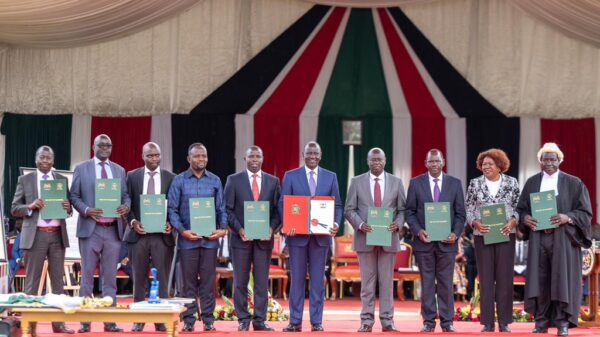NAIROBI, Kenya, Aug 10 – The government is expressing confidence that food prices will stabilise in the next two weeks as grain imports and harvests from various parts of the country continue to flood the market.
While absolving the ministry from blame over the government’s un-preparedness and slow response to the crisis, Agriculture Permanent Secretary Dr Romano Kiome said supply is now increasing which will relieve the pressure on prices.
“Imports are coming in, harvests are taking place in South Rift and farmers are selling out their produce and therefore the prices have started to come down,” he explained.
The country has in successive seasons failed to receive adequate rains which has in turn affected production and resulted in soaring food prices.
According to the Food and Agriculture Organisation, wholesale maize prices in May in many urban towns such as Nairobi and Mombasa shot up 60-85 percent above the levels registered in May last year.
The government has responded albeit too late by establishing a livestock off-take programs and opening up the country to imports.
To ensure that the country’s depleted Strategic Grain Reserve is well stocked, the ministry has also directed the National Cereals and Produce Board (NCPB) to purchase a bag of maize at Sh3, 000 up from the previous price of Sh2,500.
“We expect that this will trigger the balancing of the prices and we hope that prices will not again become very low,” he hoped.
But even as these interventions are being undertaken, the PS warned that the country is likely to have a shortfall in maize production due to the ongoing drought and a seed shortage in the crop year ending February next year.
In a bumper year, an average of 36 to 38 million bags is harvested with 2010 said to be one of the best years having managed a production of 38 million bags.
However, this figure has been dwindling over the years and this year is no different with reduced yields of between 30 to 32 million bags expected.
During the long rain seasons for instance, a production of 28 million bags is expected but this season, only about 24 million to 26 million bags are envisaged to be harvested.
This means that the deficit will continue to be bridged through cross-border trade and imports.
But even as the government recognises the need to bring in these inflows, it will have to consider the dynamics in the international market where food prices are said to be higher than locally.
Hence, the country will have to ensure that it does not export any of its food stuff lest it experiences a similar crisis next year.
In addition, the government hopes that its free-seed distribution program which commenced five years ago will begin to bear fruit and enable the country to be food secure.
Since 2006, the government has been distributing between 160 Metric Tonnes (MT) and 600 MT of drought-tolerant and fast maturing sorghum, finger millet, green grams seeds annually to farmers in drought prone areas to ensure food availability.
In areas such as many parts of Machakos County where farmers have benefited from this program, they have been able to counter the challenge of crop failure and recorded improved food productivity.




































